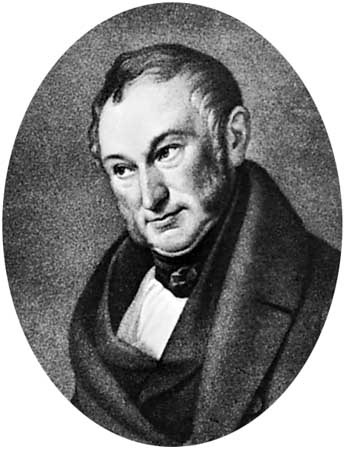Thünen, Johann Heinrich von
German agriculturalist
born June 24, 1783, Jever, Oldenburg, Germany
died September 22, 1850, Tellow, Mecklenburg
 German agriculturalist best known for his work on the relationship between the costs of commodity transportation and the location (location theory) of production.
German agriculturalist best known for his work on the relationship between the costs of commodity transportation and the location (location theory) of production.In 1810 Thünen began gathering data for the book for which he is remembered, Der isolierte Staat (1826; “The Isolated State”). In it he imagined an isolated city, set in the middle of a level and uniformly fertile plain without navigable waterways and bounded by a wilderness. He used this model to demonstrate methods of maximizing agricultural production in concentric zones. Heavy products and perishables would be produced close to the town, while lighter and more durable goods could be manufactured on the periphery. Because it would cost more to transport goods to areas distant from the city centre, the returns to the outlying areas land would diminish until, at a certain distance, land rent would become zero. Moreover, methods of cultivation would vary—with land cultivated more intensively near the city, because the more valuable land near the city would demand a high rate of return. Subsequent writers have often built upon the model that Thünen devised.
Thünen also was possibly the first economist to point out that the draft makes the military's cost of manpower artificially low and thereby encourages a government to sacrifice the lives of its own citizens.
- Baron Wilson Of Rievaulx Wilson, Harold
- Baron Wrangel, Pyotr Nikolayevich
- baroque pearl
- Baroque period
- Barossa Valley
- barotrauma
- Barquisimeto
- Barra
- Barracco Museum of Antique Sculpture
- Barrackpore
- Barrackpore Mutiny
- barracuda
- barracudina
- Barragán, Luis
- Barra Mansa
- Barrancabermeja
- Barranco
- Barrande, Joachim
- Barranquilla
- Barras, Paul-François-Jean-Nicolas, vicomte de
- Barrault, Jean-Louis
- Barr, Bob
- Barre
- barre
- barrel